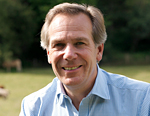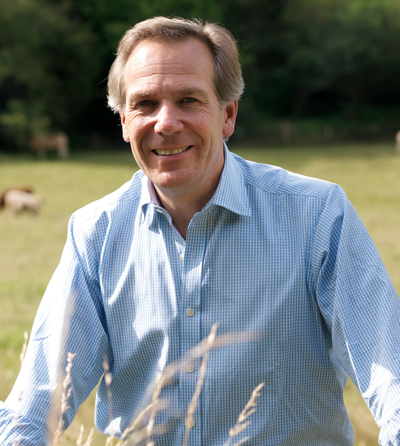Country Life Interview: William Worsley
The new President of the CLA William Worsley talks to Kate Green about his role, and that of a landowners’ association in the 21st century


The grooming period for a CLA president is long at least six years-and for new incumbent William Worsley (officially elected last week), it ‘wasn't originally on the radar', so much so that he chucked away the first papers that would've put him on the ‘production line'. ‘I was flattered, of course, and then thought, well, why not?'
A man of wide interests, sharp intellect and refreshing charm, he should enhance an organisation that has to balance being business-like, rather than toff-like (he worries about the impression given by an, albeit shabby, Belgravia head office), with trumpeting the contribution that its 35,000-plus members make to the economy and environment.
‘It mustn't look like a gents' club and it isn't, it's a business,' says Mr Worsley. ‘People think that you have to be a large landowner to join, but some members own no land at all, 25% own fewer than 25 acres and 50% fewer than 125 acres, so it's a broad church and, philosophically, you support what the CLA stands for, which is fighting for rural Britain.' He continues: ‘The CLA's strength is the intellectual quality of its debate. It's got good policy, high-powered members and employs serious scientific brains. After 12 years of Labour, we're still at the top table (in rural politics), with the NFU, and we must remain measured and sensible.'
Mr Worsley's great-great-grandfather proposed the formation of the Yorkshire Landowners Association, from which the CLA evolved, in 1907. He's the son of a baronet and former Tory MP, Sir Marcus Worsley, the nephew of a duchess (of Kent), and runs the family estate, Hovingham Hall in North Yorkshire. Ancestors include Oliver Cromwell ‘I'm deeply proud of that and would have named him my hero, except that I quite like a party and he was rather serious' aeronautical pioneer Sir George Cayley and Frank Worsley, Shackleton's navigator.
‘The perception is that you live in a big house and are rich and spoiled, but all that glitters is not gold. It's a huge privilege, but it comes at a cost. The unsung heroes are the wives.' He goes on: ‘The term landowner has been devalued, but they're the ones who look after the landscape. Estates have acted as a buffer to development. And sometimes it must have been tempting to sell, but if it's your heritage...'

Mr Worsley didn't have a career choice-he went to Cirencester rather than university as his brother, Giles, an influential architecture editor of Country Life, who died tragically young of cancer, was clearly going to have the academic career.
Besides the landowner-ish pursuits of shooting and skiing, Mr Worsley is passionate about the Arts. He collects wine, paintings, ‘gadgets', and is an avid historian. ‘At school, history finished at the French Revolution, and I've been catching up ever since. I'm interested in the Industrial Revolution and the fortunes made in the late 19th century, because it's all so similar to this past decade. Then, it was the railways; now, the trigger is the internet.' Which brings him neatly to a CLA campaign:
Exquisite houses, the beauty of Nature, and how to get the most from your life, straight to your inbox.
‘We're fighting for rural broadband. An organisation like Defra lives by it, yet the vast majority of its customer base can't get broadband.
The CLA is at the forefront of debates on the coastal path and re-wilding-both of which Mr Worsley dismisses as ‘a complete waste of money'-and food security. ‘That and broadband were the two things Hilary Benn talked about recently, which is a good thing. We raised food security two years ago and were shot down by David Miliband. So, if you plug away...
‘Without single farm payments, my profitability would be marginal, as with most British farmers. We have to create a viable agricultural industry. If people go hungry, there'll be a riot on the streets.' However, he thinks that these are hopeful times for young farmers and wants to see more women joining the CLA. ‘My grandmother was the first woman to qualify as a land agent, and I want to be the first to put a woman in line to be president,' he says, adding ruefully, ‘but women don't like committees.'
He views the presidency ‘with some trepidation and as a real challenge we've got a potential change of government and a serious economic crisis. But it's the most exciting time in this country since 1997.'
Country Life is unlike any other magazine: the only glossy weekly on the newsstand and the only magazine that has been guest-edited by His Majesty The King not once, but twice. It is a celebration of modern rural life and all its diverse joys and pleasures — that was first published in Queen Victoria's Diamond Jubilee year. Our eclectic mixture of witty and informative content — from the most up-to-date property news and commentary and a coveted glimpse inside some of the UK's best houses and gardens, to gardening, the arts and interior design, written by experts in their field — still cannot be found in print or online, anywhere else.
